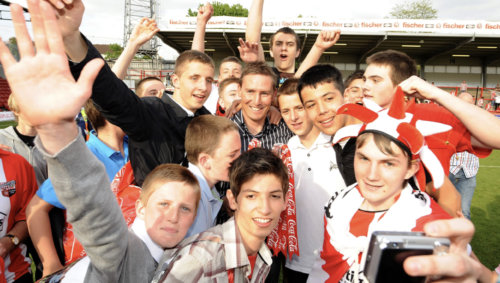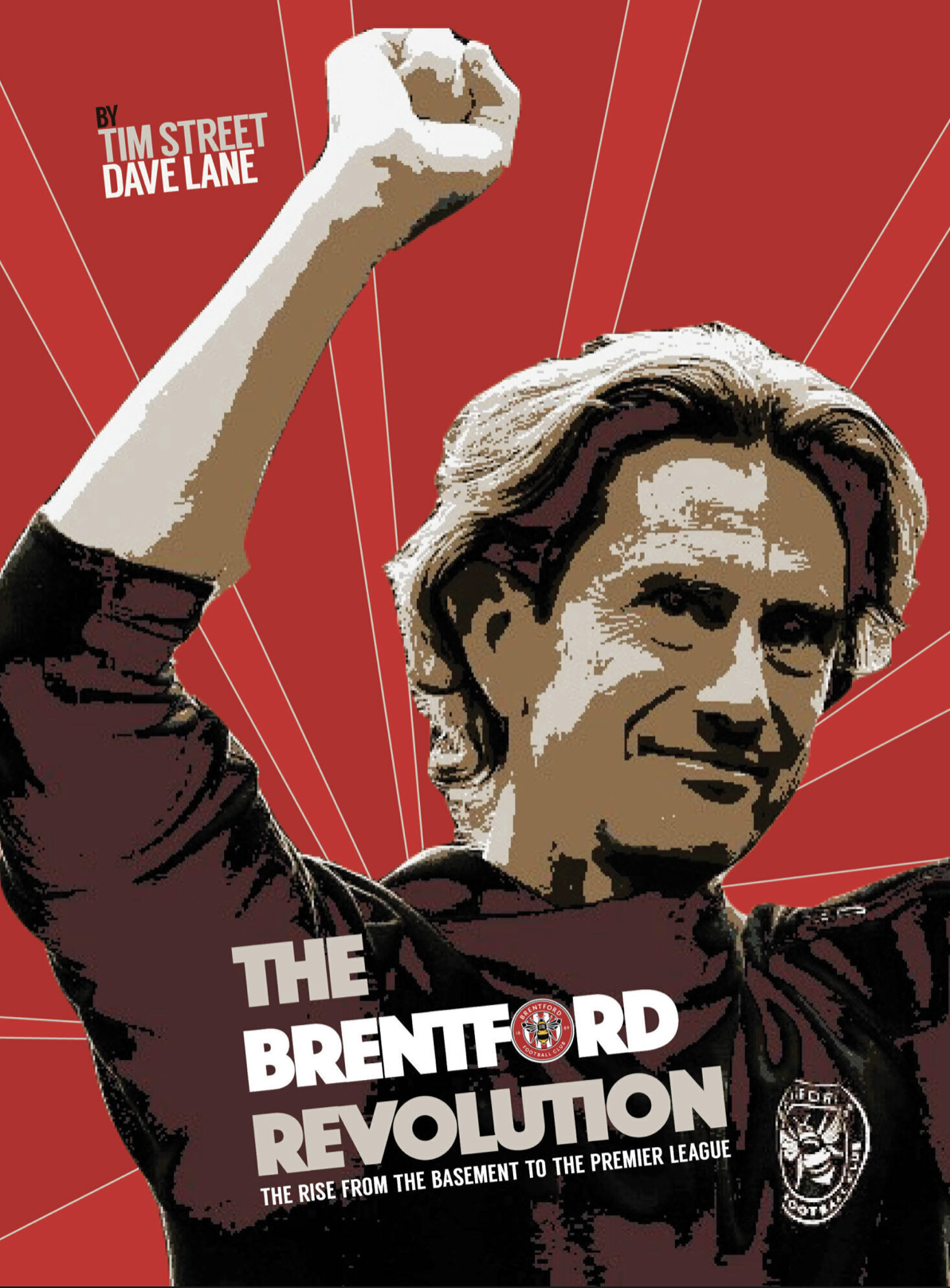Liverpool being given an almighty scare at the Brentford Community Stadium; Chelsea likewise, before being humiliated on their own turf; Arsenal being put to the sword and Manchester United humbled in TW8; Champions Manchester City going down to an Ivan Toney brace in their own backyard.
It’s not hard to see why Bees fans are still pinching themselves 16 months into their Premier League adventure. Even more so when you consider where they were only 15 years previously,
To say the club was on its knees is no exaggeration. Bees United was doing its best to fight the fires off the pitch, having taken over a club drowning in the debts built up under the previous regime.
On the pitch, 2007-08 proved to be, statistically, Brentford’s worst season on record since joining the Football League in 1930. All kinds of the wrong record were broken as the stricken Bees were relegated to League Two by Easter Monday.
Things weren’t to get any better the following season as any hope that Terry Butcher, with all the accompanying heroic imagery of an England shirt drenched in blood, would pull the club up by its bootstraps soon dissipating.
By December, the Bees, having been humiliated 7-0 at Peterborough and suffered abysmal defeats to teams like Dagenham & Redbridge, Morecambe and Macclesfield, were just a couple of points off the relegation zone. Dropping into non-league football for the first time looked a horrifying reality.
In the event, Butcher’s replacement, Andy Scott, led an on-the-pitch recovery which saw the Bees shuffle away from the danger to eventually finish in mid-table safety. It was the start of a real turnaround in fortunes which saw Brentford lift the League Two title 12 months later, and never look back.
But it was a turnaround made possible only by the arrival of another figure around the same time, who while all this was going on was quietly starting to plug the leaks in the background and slowly build towards a better future. In a few more years, Matthew Benham would take over the club, and the journey would truly begin.
It’s a journey which is chronicled in a new book, The Brentford Revolution, written by former local journalist Tim Street, who covered Brentford in the Hounslow Chronicle for many of the years in question, and Dave Lane, co-editor of the Beesotted fanzine, website and podcast.
It speaks to many of the main players in the journey – including Ras Ankersen, Phil Giles, Jon Varney, Thomas Frank, Andy Scott, Mark Warburton and Uwe Rosler – and to players both past and present, including Marcus Bean, Sam Saunders, Alan McCormack, Rico Henry, Sergi Canos and Ethan Pinnock. It also draws down on a wealth of archive material.

Scott in particular has been one of the most interesting figures along the way, having started out as the manager who rescued the club from oblivion before later returning as chief scout and head of recruitment. He was also there an onlooker in the opposition dugout when Brentford finally made it to the promised land by beating Swansea City, where he was by then head of recruitment, at Wembley.
Scott gives some interesting insights in the book as to the culture and systems introduced at the club which made the progress possible, and what had changed during the different stages of the journey that he was either at the club, or watching on with a sense of pride as they finally joined the big boys. Below is an extract from the final chapter, as Scott summarises the club’s revolution.
“It’s night and day isn’t it?” he said. “You look at when I went back in 2007, the ground was a bit scruffy, crowds were down, general malaise around the place. Coming back as chief scout the training ground had changed, the whole structure of the football club, the mentality, identity, unity of staff, players. There’s been a continual increase in everything really, everything’s moved forward, and when I went to Watford (in 2017), I said if Brentford make the Premier League, I fancy them to stay there, because they’ve got the basis of a strong club.
“When it starts to go wrong it stays solid, everyone reverts to type, knows what their job is and gets on with it. Most clubs in the Premier League just break and fall apart because they have no depth or knowledge of how to do it. That’s the strength of the club, there’s a belief in what they do and they give people time. There’s trust at both ends, and they trust the plan they have in place. That’s to be admired, because when there’s so much on the line, it’s easy to buckle to fans’ pressure or media scrutiny. But they believe in what they do.
“I love the new stadium, and the fans who were watching us get beat 7-0 at Peterborough in 2007 and heading out the Football League must be wandering what’s going on, sitting in the Premier League and getting ridiculous results. Everyone talks about it being the club people should look at as the template of how you should do it, but other clubs can’t do it as they don’t have the people within the club who work like that, and don’t have the strength to be disciplined about the strategy and the plan.”
The Brentford Revolution is available on Amazon or from https://www.legendspublishing.net/product/the-brentford-revolution

